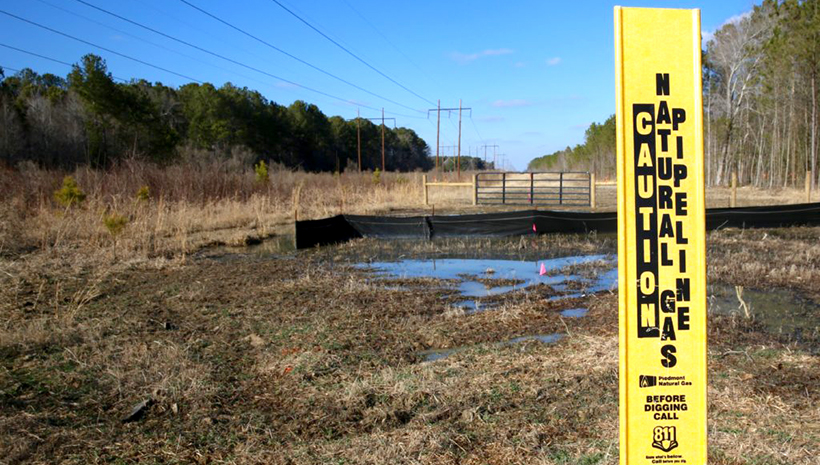Publisher's note: This post appears here courtesy of the Carolina Journal, and written by Don Carrington.
Atlantic Coast Pipeline right-of-way in Halifax County. | Photo: Don Carrington/Carolina Journal
The Atlantic Coast Pipeline remains on hold.
The 4th U.S. Circuit Court of Appeals
ruled Friday, July 26, the U.S. Fish and Wildlife Service failed to follow the Endangered Species Act when it approved a permit for the ACP. This is the second time this court has considered the issue.
The pipeline is supposed to transport natural gas from West Virginia to Virginia and North Carolina. The major partners in the project are Dominion Energy and Duke Energy. The Federal Energy Regulatory Commission approved for the project in October 2017, but FERC conditioned the approval on ACP's getting all state and federal permits, including one from FWS.
Three environmental groups - Defenders of Wildlife, Sierra Club, and Virginia Wilderness Committee - filed the lawsuit. They challenged a 2017 FWS opinion related to the taking of four species in the pipeline's footprint.
The opinion, required by the Endangered Species Act, concluded the pipeline wouldn't jeopardize the continued existence of the rusty patched bumble bees; club shell; Indiana bat; and Madison Cave isopod.
The FWS anticipated some incidental taking of the four species and issued an Incidental Take Statement with its Biological Opinion.
The groups challenged the take limits. The court agreed.
"After reviewing that agency action, we determined that FWS' take limits were arbitrary and capricious. Accordingly, we vacated the Incidental Take Statement," the court concluded in the previous challenge.
After the earlier court ruling the FWS issued a new Biological Opinion and Incidental Take Statement. The environmental groups challenged them, and the court sided with the environmentalists. It said FWS reached arbitrary conclusions and failed to correct shortcomings in the take limits the court noted in the earlier appeal.
The three-judge panel included Chief Judge Roger Gregory, Judge James Wynn, and Judge Stephanie Thacker.
ACP spokesman Aaron Ruby has not responded to a
Carolina Journal request for comment on the latest decision.

























